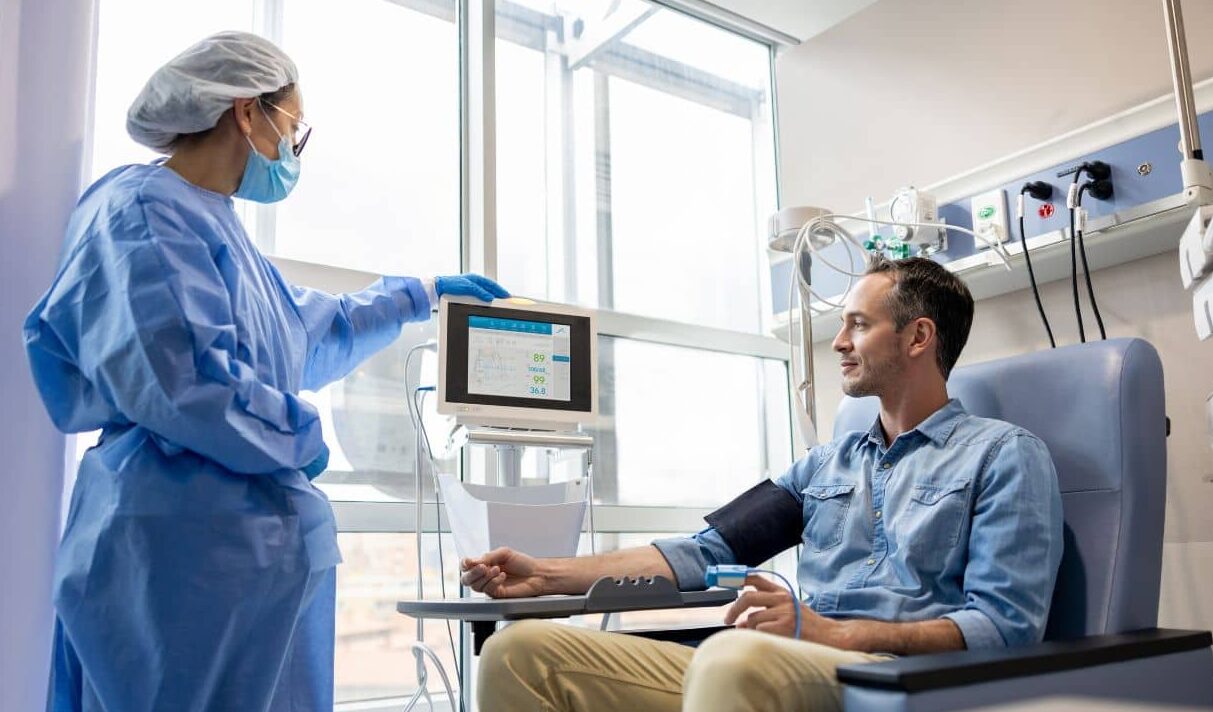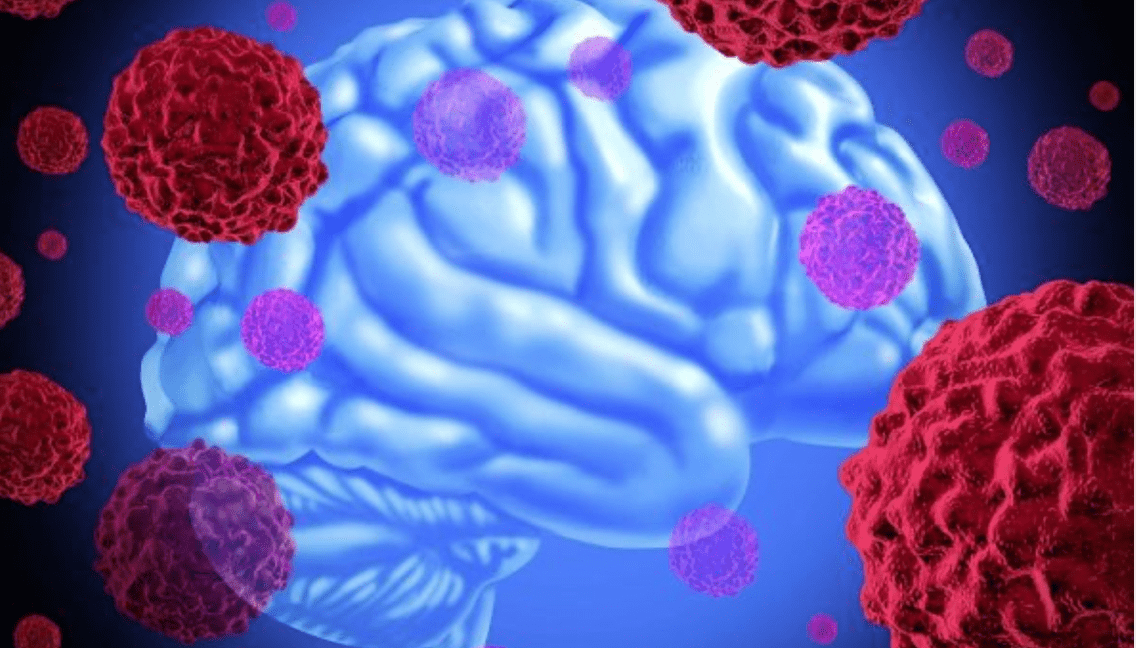-
 News
When glucose levels are low, chemotherapy ceases to affect cancer cells
News
When glucose levels are low, chemotherapy ceases to affect cancer cells
-
 News
Excessive treatment of prostate cancer in older men may reduce quality of life without increasing its duration
News
Excessive treatment of prostate cancer in older men may reduce quality of life without increasing its duration
-
 News
Brain cancer can be cured by viruses
News
Brain cancer can be cured by viruses
-
 News
Ways to reduce lymphatic pain in breast cancer have been found
News
Ways to reduce lymphatic pain in breast cancer have been found
-
 News
Scientists have turned bacteria into a powerful weapon against cancer
News
Scientists have turned bacteria into a powerful weapon against cancer
All news
Clinics for the treatment of gastroenterological
Gastroenterology is a branch of medicine that studies the structure, functions, and diseases of the gastrointestinal tract. A gastroenterologist treats diseases of these organs:
- Gastrointestinal tract: esophagus, stomach, small and large intestine;
- Hepato-biliary system: liver, bile ducts, gallbladder;
- Pancreas and its ducts;
- The rectum and the anus.
Diseases of the digestive tract are more common in adolescents aged 13-17 years. This is probably due to developmental characteristics and eating behavior. Each year, about 15% of the U.S. population goes to the doctor with gastrointestinal problems.
MedTour patients recommend clinics for the treatment of gastroenterological:
Doctors for the treatment of gastroenterology
Frequently Asked Questions
The digestive system and its adjacent organs are treated by a gastroenterologist. Also, there are more subspecialists who specialize in the treatment of individual diseases of the gastrointestinal tract:
- Hepatologist treats diseases of the liver, gallbladder, and bile-excreting pathways, as well as diseases that affect the liver and pancreas simultaneously.
- Proctologist specializes in diseases of the colon and rectum.
In the course of diagnosis and treatment, other specialists – endocrinologist, psychiatrist, abdominal and endoscopic surgeon – may also be consulted.
- Pancreatitis — inflammation of the pancreas,
- Gastritis — inflammation of the stomach,
- Duodenitis — inflammation of the duodenum,
- Colitis — inflammation of the large intestine,
- Dysbacteriosis of the intestine,
- Iritable bowel syndrome,
- Reflux disease, etc.
- Cholecystitis — inflammation of the gallbladder,
- Cholangitis — inflammation of the bile ducts,
- Fatty hepatosis — excess fat in the liver cells,
- Viral and non-viral hepatitis — inflammation of liver cells,
- Hepatic cirrhosis — replacement of liver cells with connective tissue.
Each disease of the digestive tract and liver is characterized by its own set of symptoms. However, it is possible to identify common signs that may bother you to a greater or lesser degree:
- Nausea,
- Vomiting,
- Diarrhea,
- Acute and chronic abdominal pain,
- Stomach bloating,
- Sense of early satiety.
Gastroenterology includes many diseases. Each disease differs in its localization, prevalence, and degree of severity. The treatment of each gastroenterological disease has its own peculiarities.
The main method of treatment is conservative, with medications. A gastroenterologist may prescribe one or more drugs from the following groups:
- Enthesorbents — bind and absorb toxic substances;
- Antacids — neutralize increased stomach acidity;
- Spasmodics — affect the muscle tone of the intestine, eliminate spasm;
- Ezymes — when the body’s own enzyme system is insufficient. Enzymes are involved in digestion.
- Antidepressants and sedatives. Used in irritable bowel syndrome and other diseases that are related to mental and nervous activity;
- Laxatives — affect bowel perestroika and eliminate constipation;
- Prokinetics — stimulate bowel motor function;
- Antimicrobials — destroys pathogenic microflora of the stomach, intestines, liver and other gastrointestinal organs.
MedTour medical platform helps patients from all over the world to arrange treatment of digestive organs, liver, pancreas in foreign clinics.
Leave an appeal on our website. Our medical coordinator will contact you to select a clinic and organize treatment.
We help with transportation, airfare, accommodation and accompaniment at all stages of treatment. Our services are free for all patients.
Why do patients choose foreign clinics for Gastrointestinal tract and liver treatment?
Original medicines
Being treated at a foreign clinic you can be sure you are receiving licensed medicines and not counterfeit. Most countries with a well-developed medical industry have strict controls over the production, content, and distribution of medical products and medications.
Doctors prefer original medications over generics. Generics have the same chemical structure as the original drug. However, its effect on the body may be less effective.
Experienced team of doctors
As a rule, foreign patients are received by a doctor who has a scientific degree and many years of experience in gastroenterology. The clinic does this in order to preserve and augment its reputation.
Another advantage of advanced foreign centers is their multidisciplinary approach. Several specialists are involved in treating each patient. This guarantees high quality of medical services.
Certified Clinics
Most clinics on the MedTour platform are accredited by the Joint Commission International (JCI) and meet ISO quality standards. For patients, this means that they can count on high standards of medical care throughout their treatment.
Published:
Updated:









